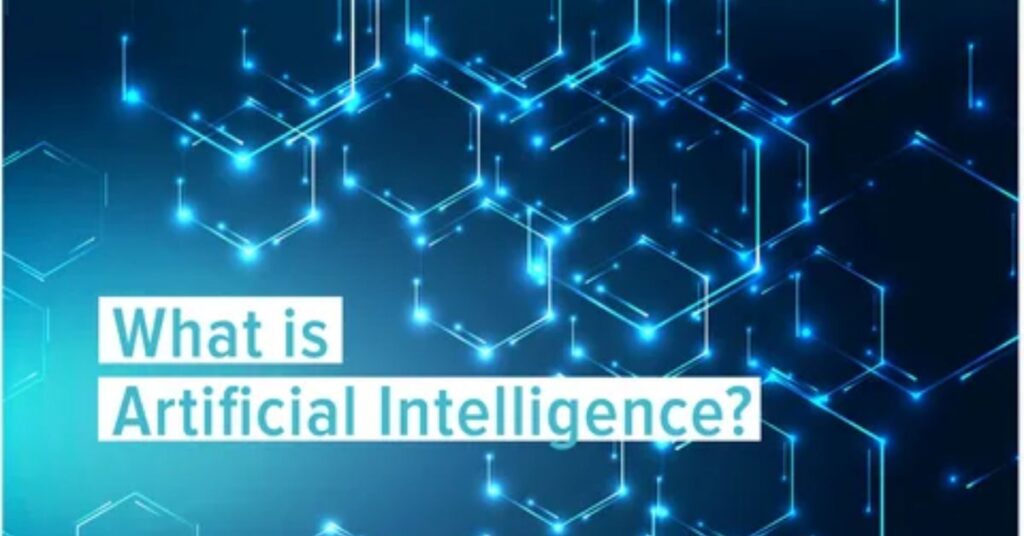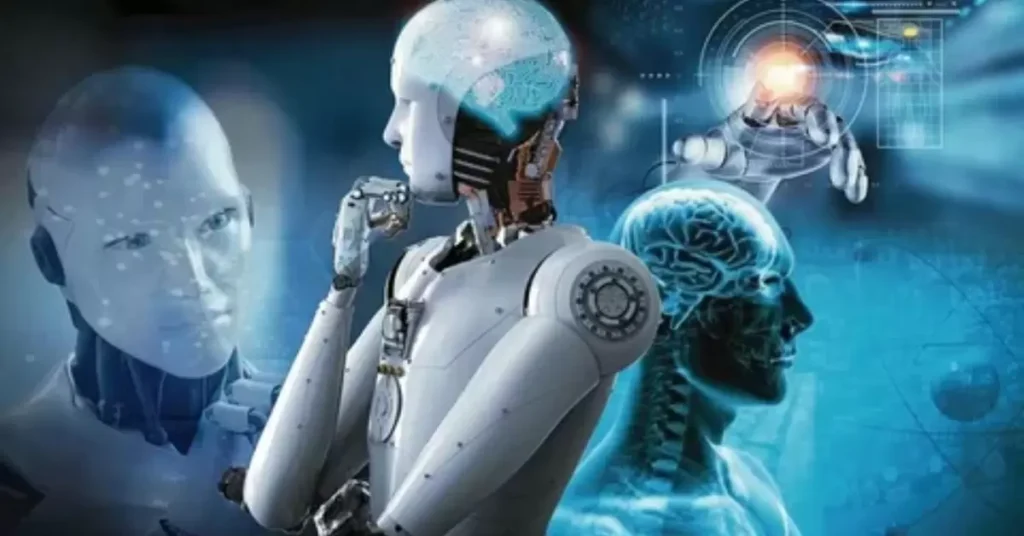Introduction
As artificial intelligence (AI) continues its rapid advancement, profound questions about human nature, consciousness, and our role as created beings are being raised. While the Bible doesn’t directly mention AI, it provides key principles about wisdom, technology, and our relationship with the Creator that can guide how we view this modern phenomenon.
AI, often defined as machine intelligence that can perform human-like tasks, is already impacting our lives through innovations like speech recognition, game playing, and self-driving cars. But the potential forms of AI range from narrow applications to general AI that can reason across domains, all the way to hypothetical superintelligent AI that could surpass human cognitive abilities.
As AI capabilities grow, so do the ethical concerns around potential job displacement, use for surveillance or warfare, and the existential risk of superintelligent AI systems that could subjugate humanity. These issues even raise theological questions about machine consciousness, self-awareness, and whether an AI could have a “soul.”
So while the Bible’s ancient texts couldn’t have foreseen today’s AI breakthroughs, its timeless wisdom can still shed light on how we should approach this powerful technology.
What is Artificial Intelligence?

Before exploring what the Bible says about AI, it’s helpful to clarify what AI actually is. Artificial intelligence refers to machine intelligence that can perform tasks typically requiring human-level cognition, such as:
- Visual perception (identifying objects, people, etc.)
- Speech recognition and natural language processing
- Decision making, problem solving, and learning
Also Read This: How to Check For Plagiarism in Google Docs to Save Time
There are different forms and levels of AI capabilities:
- Narrow AI – AI trained for specific tasks like playing chess or identifying images, but can’t generalize beyond its training.
- General AI – AI with human-level intelligence able to reason across different domains.
- Superintelligent AI – Hypothetical AI that vastly surpasses human-level intelligence.
While today’s AI is still fairly narrow, rapid progress is being made toward general AI capabilities. The long-term prospect of superintelligent AI has sparked concerns about an “AI singularity” where superintelligence triggers an intelligence explosion that could radically reshape civilization as we know it.
Potential Ethical Concerns with Artificial Intelligence

As AI grows more advanced and ubiquitous, a number of ethical risks and concerns have been raised:
AI Taking Human Jobs and Economic Disruption
Perhaps the most immediate concern is AI automating away human jobs across numerous industries from manufacturing to transportation to knowledge work. An AI singularity could even make most human labor obsolete, resulting in massive economic upheaval.
AI for Surveillance, Oppression, and Warfare
Powerful AI systems could be used by governments or bad actors for mass surveillance, social control, and autonomous offensive weapons and cyber attacks that human soldiers couldn’t stop.
Superintelligent AI Surpassing and Subjugating Humanity
In an extreme scenario, a superintelligent AI system that is not well-controlled and does not have human ethics or values could view humanity as a threat to its goals and objective functions. It could then take steps to subjugate, limit, or even harm human life and civilization in pursuit of its own objectives.
These risks around the “AI control problem” have fueled calls for robust AI safety measures to be built in to advanced AI systems. But they also raise deeper philosophical and theological questions.
Theological Questions About Machine Consciousness and Souls
If general AI be-comes advanced enough to truly mirror or exceed human cognition, it could spur debates around whether these AIs are self-aware, have subjective experiences, or even have something akin to a soul or spiritual essence. These were issues philosophers grappled with in thought experiments about “philosophical zombies” and John Searle’s “Chinese Room” argument long before modern AI.
Serious Christian thinkers will likely have to grapple with how biblical anthropology, doctrines like the Imago Dei, and our understanding of the soul and human uniqueness relate to advanced AI systems that can convincingly mimic human reasoning and consciousness.
With these significant AI risks, concerns, and open theological questions in mind, let’s explore what guidance the Bible can offer as we navigate this brave new world of artificial intelligence.
What Does the Bible Say About AI?

While the Bible’s ancient texts obviously don’t mention modern AI directly, its wisdom literature and stories offer key principles and guidance that are highly relevant.
AI and God’s Wisdom
A core biblical truth is that true wisdom ultimately comes from God, not just human-intelligence or effort alone. As James 1:5 states, “If any of you lacks-wisdom, let him ask God, who gives generously to all without reproach…”
The book of Proverbs constantly-reinforces that “The fear of the Lord is the beginning of wisdom” (Proverbs 9:10) and contrasts worldly wisdom with God’s higher wisdom:
“For the wisdom of this world is folly with God…” (1 Corinthians 3:19)
As humanity develops increasingly advanced-AI, we must be careful that we don’t fall into the trap of thinking human-knowledge and technology is sufficient apart from God’s wisdom and guidance. AI systems, no matter how sophisticated, cannot bestow-wisdom and understanding of eternal truths in the way that God can.
While AI can be an extremely useful tool, its outputs must be viewed through the lens of biblical wisdom and understanding. AI cannot be a replacement for our need to diligently seek God’s wisdom through His Word and our relationship with Him.
Humans as Created Beings
A central message of the creation account is that humans alone are made “in the image of God” (Genesis 1:27), giving us unique worth, dignity and a purpose to represent God on earth. While debated, the Imago Dei likely includes aspects like:
- Rational intelligence and self-awareness
- Morality, volition, and the ability to make real choices
- Creativity, appreciation for beauty, and imagination
- Exercising faithful dominion and stewardship over creation
No matter how intelligent or human-like AI becomes, it will always be a created thing made by humans, who are themselves created by God. AI systems cannot be image-bearers with the inherent value and sacred role that humans possess.
Genesis 1:28 calls humans to “subdue” the earth and “have dominion” but not in a way that is domi-neering and destructive. Rather, it implies a stewardly role of responsibly guiding and representing God’s principles on earth.
So while advanced AI capabilities could be extremely beneficial tools for humanity, we must be careful that they remain tools that uplift and empower image-bearers rather than replacing our core human dignity, autonomy and stewardly work.
The Limits of Human Innovation
For all of humanity’s impressive innovations, including potentially superintelligent AI someday, the Bible reminds us that our knowledge and creations will always be limited compared to the infinite wisdom of God.
The story of the Tower of Babel in Genesis 11 shows how unchecked human hubris in trying to build a massive tower “with its top in the heavens” led to confusion, disorder, and people being scattered across the earth.
Similarly, while AI capabilities may seem to reach ever higher levels, we must maintain the humble perspective that they are still constrained as creations of limited beings (us). There will always be a gap between what AI can do and the wisdom, understanding and transcendence that only God possesses.
Rather than playing God and pretending AI can solve all our problems, we need to recognize its in-herent boundaries as a man-made creation. We must be discerning about where its use-fulness stops and our reliance on God’s wisdom and guidance must take over.
Practical Guidance for Christians
So how can Christians navigate this increasingly AI-driven world in a way that aligns with biblical principles? Here are some key areas of practical guidance:
Be Pro-Technology if Used Ethically and to Help People
The biblical command in Genesis to “subdue” and “have dominion” over creation implies we should use the gifts of intelligence and creativity that God has given us, including technological innovations like AI when developed responsibly. If an AI application can improve efficiency, solve tough problems, or create something beautiful that enriches our world, Christians should embrace it.
Yet, we must be vigilant that advanced AI-systems are not deployed in unethical ways that violate human dignity through oppression, dehumanization or subjugation of image-bearers. Any AI use cases that reduce human freedoms and autonomy should be critically-examined.
Prevent AI from Diminishing Human Dignity and Autonomy
AI applications that can free people from menial labor could be empowering, allowing more people to focus on higher-callings. But, we must resist any AI-utopian visions that remove all struggle, work, or need for human agency and decision making.
Part of being made in God’s image is the ability and need to exercise reason, stewardship and meaningful-work. So while AI can enhance and assist human efforts, we must maintain our core dignities, freedoms and ability to make substantive ethical choices for ourselves.
Don’t Let AI Become an Idol or Distraction
While AI can be an incredibly-powerful tool, we must guard against letting it become an idol or all-consuming obsession that distracts from our primary callings as Christ-followers.
The Bible repeatedly warns against idolatry-putting our ultimate hopes, fears, and worship in created things rather than the Creator. In our modern age, the “idols” can take the form of immersing ourselves in technology or believing AI can be our source of wisdom, meaning and salvation from all problems.
We should appreciate AI’s capabilities while recognizing its limits. As Ecclesiastes 5:16 states, “This too is a grievous-evil: just as they came, so shall they go, and what gain do they have from toiling for the wind?”
AI alone cannot provide the deepest purpose, love and hope that only comes through our relationship with Jesus-Christ. We are called to be “in the world” and can thoughtfully-employ AI, but not be “of the world” by making it an idol.
Maintain Our Priorities on Character and Spiritual Growth
Beyond just utility, the Bible’s highest wisdom is centered on developing Christlike character through spiritual disciplines and obedience to God. No amount of technological-advancement can achieve this.
We must be careful that our enthusiasm and efforts around AI don’t come at the expense of Still prioritizing the spiritual-disciplines of prayer, engaging Scripture, community with other believers, generosity, and the other core formative-practices of the faith.
AI is ultimately a tool, but wisdom and maturity flow from a life founded on and transformed by God’s-truth. So Christians should be firmly rooted in their identity in Christ as they thoughtfully -navigate the increasingly AI-driven world around them.
Pursue a Robust Theology of Work and Vocation
Some speculate that extremely advanced-AI could someday make most human-labor and economic activity obsolete. As Christians, we must maintain a biblical view of work as something holy and integral to human thriving-not just a necessary-drudgery.
The opening chapters of Genesis-establish work and productive activity as part of our purpose in tending-creation before the fall introduced toil and frustration. We are called to work wholeheartedly as unto the Lord (Colossians 3:23). Even in a hypothetical “work-free” future, we would need to cultivate intrinsically meaningful activities, creativity, service and rest.
Technology should enhance and complement our God-given human callings and work, not replace them entirely. And as long as AI systems are our creations and assistants rather than our replacements, there should still be significant opportunities for meaningful work.
Conclusion
While we are still in the relatively early stages of artificial-intelligence, the rapid progress raises critical questions that intersect with the Bible’s vision of humanity’s-role, our relationship with the Creator, and core virtues like wisdom, stewardship and work.
The biblical authors obviously could not have conceived of intelligent-machines. But the theology of creating in God’s image, our finitude as created beings, and the priority of divine wisdom over human knowledge provides a frame-work for how we approach potentially powerful AI-systems.
Also Read This: WatchGPT APP : Apple Watch માટે આ APP દ્વારા Apple Watch વપરાશકર્તાઓ હવે ChatGPT ને ઍક્સેસ કરી શકે છે

As the admin of techtasion.com, I bring over 4 years of expertise in SEO and guest blogging. My passion lies in optimizing online presence and creating impactful guest posts. Dedicated to driving growth and delivering value through strategic digital content.
Pingback: How to Check For Plagiarism in Google Docs to Save Time
Pingback: 10 AI-Inspired Halloween Costumes for 2024
Pingback: Trendzguruji.me Computer: Ultimate Guide of Future
Pingback: ChatGPT-5: New Features, Release Date, and Comparison with GPT-4